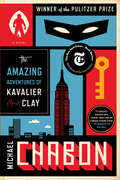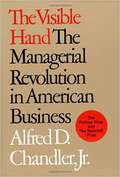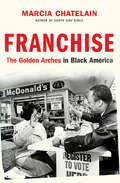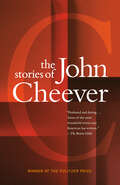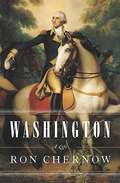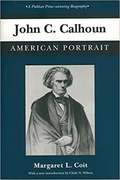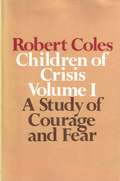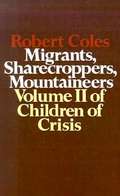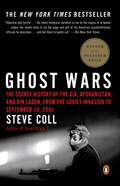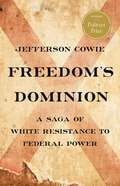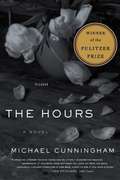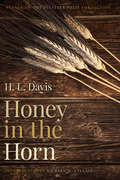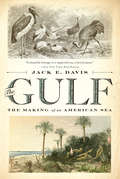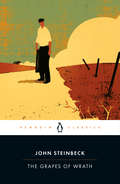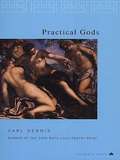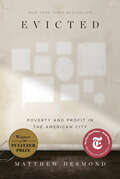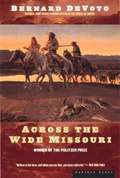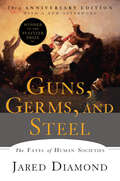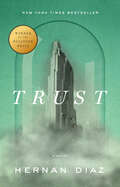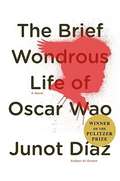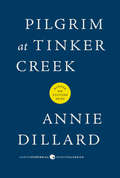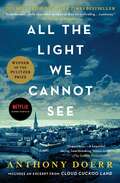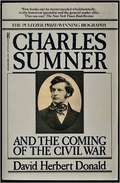Special Collections
Pulitzer Prize Award Winners
Description: Bookshare is pleased to offer the following titles, winners of the Pulitzer Prize Award. Note: Some drama winners are available and are listed under Fiction awards. #award
- Table View
- List View
The Amazing Adventures of Kavalier & Clay (with bonus content)
by Michael ChabonWINNER OF THE PULITZER PRIZE • NEW YORK TIMES BESTSELLER • The epic, beloved novel of two boy geniuses dreaming up superheroes in New York&’s Golden Age of comics, now with special bonus material by the author &“It's absolutely gosh-wow, super-colossal—smart, funny, and a continual pleasure to read.&”—The Washington Post Book World One of The New York Times&’s 100 Best Books of the 21st Century • One of Entertainment Weekly&’s 10 Best Books of the Decade • Finalist for the PEN/Faulkner Award, National Book Critics Circle Award, and Los Angeles Times Book PrizeA &“towering, swash-buckling thrill of a book&” (Newsweek), hailed as Chabon&’s &“magnum opus&” (The New York Review of Books), The Amazing Adventures of Kavalier & Clay is a triumph of originality, imagination, and storytelling, an exuberant, irresistible novel that begins in New York City in 1939. A young escape artist and budding magician named Joe Kavalier arrives on the doorstep of his cousin, Sammy Clay. While the long shadow of Hitler falls across Europe, America is happily in thrall to the Golden Age of comic books, and in a distant corner of Brooklyn, Sammy is looking for a way to cash in on the craze. He finds the ideal partner in the aloof, artistically gifted Joe, and together they embark on an adventure that takes them deep into the heart of Manhattan, and the heart of old-fashioned American ambition. From the shared fears, dreams, and desires of two teenage boys, they spin comic book tales of the heroic, fascist-fighting Escapist and the beautiful, mysterious Luna Moth, otherworldly mistress of the night. Climbing from the streets of Brooklyn to the top of the Empire State Building, Joe and Sammy carve out lives, and careers, as vivid as cyan and magenta ink. Spanning continents and eras, this superb book by one of America&’s finest writers remains one of the defining novels of our modern American age. Winner of the Bay Area Book Reviewers Award and the New York Society Library Book Award
The Visible Hand
by Alfred D. ChandlerThe role of large-scale business enterpriseâe"big business and its managersâe"during the formative years of modern capitalism (from the 1850s until the 1920s) is delineated in this pathmarking book.
Alfred Chandler, Jr. , the distinguished business historian, sets forth the reasons for the dominance of big business in American transportation, communications, and the central sectors of production and distribution. The managerial revolution, presented here with force and conviction, is the story of how the visible hand of management replaced what Adam Smith called the âe~invisible handâe(tm) of market forces. Chandler shows that the fundamental shift toward managers running large enterprises exerted a far greater influence in determining size and concentration in American industry than other factors so often cited as critical: the quality of entrepreneurship, the availability of capital, or public policy.
Pulitzer Prize Winner
Franchise
by Marcia ChatelainFrom civil rights to Ferguson, Franchise reveals the untold history of how fast food became one of the greatest generators of black wealth in America. Often blamed for the rising rates of obesity and diabetes among black Americans, fast food restaurants like McDonald’s have long symbolized capitalism’s villainous effects on our nation’s most vulnerable communities. But how did fast food restaurants so thoroughly saturate black neighborhoods in the first place? In Franchise, acclaimed historian Marcia Chatelain uncovers a surprising history of cooperation among fast food companies, black capitalists, and civil rights leaders, who—in the troubled years after King’s assassination—believed they found an economic answer to the problem of racial inequality. With the discourse of social welfare all but evaporated, federal programs under presidents Johnson and Nixon promoted a new vision for racial justice: that the franchising of fast food restaurants, by black citizens in their own neighborhoods, could finally improve the quality of black life. Synthesizing years of research, Franchise tells a troubling success story of an industry that blossomed the very moment a freedom movement began to whither.
The Stories of John Cheever
by John CheeverWhen The Stories of John Cheever was originally published, it became an immediate national bestseller and won the Pulitzer Prize. In the years since, it has become a classic. Vintage Books is proud to reintroduce this magnificent collection.
Here are sixty-one stories that chronicle the lives of what has been called "the greatest generation." From the early wonder and disillusionment of city life in "The Enormous Radio" to the surprising discoveries and common mysteries of suburbia in "The Housebreaker of Shady Hill" and "The Swimmer," Cheever tells us everything we need to know about "the pain and sweetness of life."
Winner of the Pulitzer Prize
Winner of the National Book Award
Washington
by Ron ChernowIn Washington: A Life celebrated biographer Ron Chernow provides a richly nuanced portrait of the father of our nation. With a breadth and depth matched by no other one-volume life of Washington, this crisply paced narrative carries the reader through his troubled boyhood, his precocious feats in the French and Indian War, his creation of Mount Vernon, his heroic exploits with the Continental Army, his presiding over the Constitutional Convention, and his magnificent performance as America's first president.
Despite the reverence his name inspires, Washington remains a lifeless waxwork for many Americans, worthy but dull. A laconic man of granite self-control, he often arouses more respect than affection. In this groundbreaking work, based on massive research, Chernow dashes forever the stereotype of a stolid, unemotional man. A strapping six feet, Washington was a celebrated horseman, elegant dancer, and tireless hunter, with a fiercely guarded emotional life. Chernow brings to vivid life a dashing, passionate man of fiery opinions and many moods. Probing his private life, he explores his fraught relationship with his crusty mother, his youthful infatuation with the married Sally Fairfax, and his often conflicted feelings toward his adopted children and grandchildren. He also provides a lavishly detailed portrait of his marriage to Martha and his complex behavior as a slave master.
At the same time, Washington is an astute and surprising portrait of a canny political genius who knew how to inspire people. Not only did Washington gather around himself the foremost figures of the age, including James Madison, Alexander Hamilton, John Adams, and Thomas Jefferson, but he also brilliantly orchestrated their actions to shape the new federal government, define the separation of powers, and establish the office of the presidency.
In this unique biography, Ron Chernow takes us on a page-turning journey through all the formative events of America's founding. With a dramatic sweep worthy of its giant subject, Washington is a magisterial work from one of our most elegant storytellers.
Pulitzer Prize Winner
John C. Calhoun
by Margaret L. CoitPulitzer Prize winning biography of the prominent politician during the early 1800s.
Children of Crisis
by Robert ColesThe notoriety of this book rests on two pretty shaky pillars: first, the initial section of the book is supposed to reveal the effects of segregation and desegregation battles on children, mainly through their drawings, which have become almost iconographic; second, the book was the first major effort to look at segregationists as if they were normal human beings and not vile mutants. But the child studies seem dubious and the novelty of the even handed treatment of white Southerners is more of an indictment of the prevailing intellectual hegemony of the 60's than a recommendation for this book in particular.
Pulitzer Prize Winner
Migrants, Sharecroppers, Mountaineers (Volume 2 of Children of Crisis)
by Robert ColesSince the late 1950's, Robert Coles has been studying, living with, and, above all, listening to the American poor. The result is one of the most vigorous and searching social studies ever undertaken by one man in the United States. Migrants, Sharecroppers, Mountaineers is the second volume in Dr. Coles's award-winning series, Children of Crisis. In it, he listens to three groups: the migrant workers who travel the eastern coast of this country, picking crops day after day; the sharecroppers and tenant farmers who live on isolated southern plantations, just as their ancestors did as slaves; and the mountaineers of Appalachia, whose only choice lies between coal mining and starvation.
Pulitzer Prize Winner
Ghost Wars
by Steve CollWinner of the 2005 Pulitzer PrizeThe explosive first-hand account of America's secret history in AfghanistanWith the publication of Ghost Wars, Steve Coll became not only a Pulitzer Prize winner, but also the expert on the rise of the Taliban, the emergence of Bin Laden, and the secret efforts by CIA officers and their agents to capture or kill Bin Laden in Afghanistan after 1998.
Freedom’s Dominion (Winner of the Pulitzer Prize)
by Jefferson CowieWINNER OF THE PULITZER PRIZE IN HISTORYAn "important, deeply affecting—and regrettably relevant" (New York Times) chronicle of a sinister idea of freedom: white Americans&’ freedom to oppress others and their fight against the government that got in their way. American freedom is typically associated with the fight of the oppressed for a better world. But for centuries, whenever the federal government intervened on behalf of nonwhite people, many white Americans fought back in the name of freedom—their freedom to dominate others. In Freedom&’s Dominion, historian Jefferson Cowie traces this complex saga by focusing on a quintessentially American place: Barbour County, Alabama, the ancestral home of political firebrand George Wallace. In a land shaped by settler colonialism and chattel slavery, white people weaponized freedom to seize Native lands, champion secession, overthrow Reconstruction, question the New Deal, and fight against the civil rights movement. A riveting history of the long-running clash between white people and federal authority, this book radically shifts our understanding of what freedom means in America.
Anna in the Tropics
by Nilo CruzWinner of the 2003 Pulitizer Prize for Drama. . . there are many kinds of light.The light of fires. The light of stars.The light that reflects off rivers.Light that penetrates through cracks.Then there's the type of light that reflects off the skin.--Nilo Cruz, Anna in the TropicsThis lush romantic drama depicts a family of cigar makers whose loves and lives are played out against the backdrop of America in the midst of the Depression. Set in Ybor City (Tampa) in 1930, Cruz imagines the catalytic effect the arrival of a new "lector" (who reads Tolstoy's Anna Karenina to the workers as they toil in the cigar factory) has on a Cuban-American family. Cruz celebrates the search for identity in a new land."The words of Nilo Cruz waft from the stage like a scented breeze. They sparkle and prickle and swirl, enveloping those who listen in both specific place and time . . . and in timeless passions that touch us all. In Anna in the Tropics, the world premiere work he created for Coral Gables' intimate New Theatre, Cruz claims his place as a storyteller of intricate craftsmanship and poetic power."--Miami HeraldNilo Cruz is a young Cuban-American playwright whose work has been produced widely around the United States including the Public Theater (New York, NY), South Coast Repertory (Costa Mesa, CA), Magic Theatre (San Francisco, CA), Oregon Shakespeare Festival, McCarter Theater (Princeton, NJ) and New Theatre (Coral Gables, FL). His other plays include Night Train to Bolina, Two Sisters and a Piano, Hortensia and the Museum of Dreams, among others. Anna in the Tropics also won the Steinberg Award for Best New Play. Mr. Cruz teaches playwriting at Yale University and lives in New York City.
The Hours
by Michael CunninghamPassionate, profound, and deeply moving, 'The Hours' is the story of three women: Clarissa Vaughan, who on one New York morning goes about planning a party in honor of a beloved friend; Laura Brown, who in a 1950s Los Angeles suburb begins to feel the constraints of a perfect family and home; and Virginia Woolf, recuperating in a London suburb, and beginning to write 'Mrs. Dalloway.' By the end of the novel, the stories have intertwined, and finally come together in an act of subtle and haunting grace, demonstrating Michael Cunningham's deep empathy for his characters as well as the extraordinary resonance of his prose.
Pulitzer Prize Winner
Honey in the Horn
by H. L. DavisIn this epic work by award-winning novelist, poet, and essayist H.L. Davis, the virtues of the frontier live again in the lives and characters of Oregon settlers during the homesteading period from 1906-1908.
Winner of the 1936 Pulitzer Prize for fiction.
The Gulf
by Jack E. DavisThe tragic collision between civilization and nature in the Gulf of Mexico becomes a uniquely American story in this environmental epic.
When painter Winslow Homer first sailed into the Gulf of Mexico, he was struck by its "special kind of providence." Indeed, the Gulf presented itself as America’s sea—bound by geography, culture, and tradition to the national experience—and yet, there has never been a comprehensive history of the Gulf until now. And so, in this rich and original work that explores the Gulf through our human connection with the sea, environmental historian Jack E. Davis finally places this exceptional region into the American mythos in a sweeping history that extends from the Pleistocene age to the twenty-first century.
Significant beyond tragic oil spills and hurricanes, the Gulf has historically been one of the world's most bounteous marine environments, supporting human life for millennia. Davis starts from the premise that nature lies at the center of human existence, and takes readers on a compelling and, at times, wrenching journey from the Florida Keys to the Texas Rio Grande, along marshy shorelines and majestic estuarine bays, profoundly beautiful and life-giving, though fated to exploitation by esurient oil men and real-estate developers.
Rich in vivid, previously untold stories, The Gulf tells the larger narrative of the American Sea—from the sportfish that brought the earliest tourists to Gulf shores to Hollywood’s engagement with the first offshore oil wells—as it inspired and empowered, sometimes to its own detriment, the ethnically diverse groups of a growing nation. Davis' pageant of historical characters is vast, including: the presidents who directed western expansion toward its shores, the New England fishers who introduced their own distinct skills to the region, and the industries and big agriculture that sent their contamination downstream into the estuarine wonderland. Nor does Davis neglect the colorfully idiosyncratic individuals: the Tabasco king who devoted his life to wildlife conservation, the Texas shrimper who gave hers to clean water and public health, as well as the New York architect who hooked the “big one” that set the sportfishing world on fire.
Ultimately, Davis reminds us that amidst the ruin, beauty awaits its return, as the Gulf is, and has always been, an ongoing story. Sensitive to the imminent effects of climate change, and to the difficult task of rectifying grievous assaults of recent centuries, The Gulf suggests how a penetrating examination of a single region's history can inform the country's path ahead.
Winner of the 2018 Pulitzer Prize for History
The Grapes of Wrath
by John Steinbeck and Robert DemottThe Pulitzer Prize-winning epic of the Great Depression, a book that galvanized--and sometimes outraged--millions of readers.
First published in 1939, Steinbeck's Pulitzer Prize-winning epic of the Great Depression chronicles the Dust Bowl migration of the 1930s and tells the story of one Oklahoma farm family, the Joads-driven from their homestead and forced to travel west to the promised land of California. Out of their trials and their repeated collisions against the hard realities of an America divided into Haves and Have-Nots evolves a drama that is intensely human yet majestic in its scale and moral vision, elemental yet plainspoken, tragic but ultimately stirring in its human dignity.
A portrait of the conflict between the powerful and the powerless, of one man's fierce reaction to injustice, and of one woman's stoical strength, the novel captures the horrors of the Great Depression and probes into the very nature of equality and justice in America.
The Grapes of Wrath summed up its era in the way that Uncle Tom's Cabin summed up the years of slavery before the Civil War. Sensitive to fascist and communist criticism, Steinbeck insisted that "The Battle Hymn of the Republic" be printed in its entirety in the first edition of the book--which takes its title from the first verse: "He is trampling out the vintage where the grapes of wrath are stored." At once a naturalistic epic, captivity narrative, road novel, and transcendental gospel, Steinbeck's powerful landmark novel is perhaps the most American of American Classics.
This edition contains an introduction and notes by Steinbeck scholar Robert Demott.
Practical Gods
by Carl DennisWinner of the 2001 Pulitzer Prize for Poetry. Practical Gods is the eighth collection by Carl Dennis, a critically acclaimed poet and recent winner of one of the most prestigious poetry awards, the Ruth Lilly Prize. Carl Dennis has won acclaim for "wise, original, and often deeply moving" poems that "ease the reader out of accustomed modes of seeing and perceiving" (The New York Times). Many of the poems in this new book involve an attempt to enter into dialogue with pagan and biblical perspectives, to throw light on ordinary experience through metaphor borrowed from religious myth and to translate religious myth into secular terms. While making no claims to put us in touch with some ultimate reality, these clear, precise, sensitive poems help us to pay homage to the everyday household gods that are easy to ignore, the gods that sustain life and make it rewarding. .
Evicted
by Matthew DesmondNEW YORK TIMES BESTSELLER • WINNER OF THE PULITZER PRIZE • ONE OF TIME&’S TEN BEST NONFICTION BOOKS OF THE DECADE • ONE OF THE NEW YORK TIMES&’S 100 BEST BOOKS OF THE 21ST CENTURY One of the most acclaimed books of our time, this modern classic &“has set a new standard for reporting on poverty&” (Barbara Ehrenreich, The New York Times Book Review).In Evicted, Princeton sociologist and MacArthur &“Genius&” Matthew Desmond follows eight families in Milwaukee as they each struggle to keep a roof over their heads. Hailed as &“wrenching and revelatory&” (The Nation), &“vivid and unsettling&” (New York Review of Books), Evicted transforms our understanding of poverty and economic exploitation while providing fresh ideas for solving one of twenty-first-century America&’s most devastating problems. Its unforgettable scenes of hope and loss remind us of the centrality of home, without which nothing else is possible. A BEST BOOK OF THE YEAR: President Barack Obama, The New York Times Book Review, The Boston Globe, The Washington Post, NPR, Entertainment Weekly, The New Yorker, Bloomberg, Esquire, BuzzFeed, Fortune, San Francisco Chronicle, Milwaukee Journal Sentinel, St. Louis Post-Dispatch, Politico, The Week, Chicago Public Library, BookPage, Kirkus Reviews, Library Journal, Publishers Weekly, Booklist, Shelf AwarenessWINNER OF: The National Book Critics Circle Award for Nonfiction • The PEN/John Kenneth Galbraith Award for Nonfiction • The Andrew Carnegie Medal for Excellence in Nonfiction • The Hillman Prize for Book Journalism • The PEN/New England Award • The Chicago Tribune Heartland PrizeFINALIST FOR THE LOS ANGELES TIMES BOOK PRIZE AND THE KIRKUS PRIZE&“Evicted stands among the very best of the social justice books.&”—Ann Patchett, author of Bel Canto and Commonwealth &“Gripping and moving—tragic, too.&”—Jesmyn Ward, author of Salvage the Bones &“Evicted is that rare work that has something genuinely new to say about poverty.&”—San Francisco Chronicle
Across the Wide Missouri
by Bernard A. DevotoAcross the Wide Missouri tells the compelling story of the climax and decline of the Rocky Mountain fur trade during the 1830s. More than a history, it portrays the mountain fur trade as a way of business and a way of life, vividly illustrating how it shaped the expansion of the American West.
Winner of the Pulitzer Prize and the Bancroft Prize.
Guns, Germs, and Steel
by Jared DiamondIn this book, Jared Diamond convincingly argues that geographical and environmental factors shaped the modern world. Societies that had had a head start in food production advanced beyond the hunter-gatherer stage, and then developed religion --as well as nasty germs and potent weapons of war --and adventured on sea and land to conquer and decimate preliterate cultures. A major advance in our understanding of human societies, Guns, Germs, and Steel chronicles the way that the modern world came to be and stunningly dismantles racially based theories of human history.
Winner of the Pulitzer Prize, the Phi Beta Kappa Award in Science, the Rhone-Poulenc Prize, and the Commonwealth club of California's Gold Medal.
Trust
by Hernan DiazAn unparalleled novel about money, power, intimacy, and perception.
Even through the roar and effervescence of the 1920s, everyone in New York has heard of Benjamin and Helen Rask. He is a legendary Wall Street tycoon; she is the daughter of eccentric aristocrats. Together, they have risen to the very top of a world of seemingly endless wealth—all as a decade of excess and speculation draws to an end. But at what cost have they acquired their immense fortune?
This is the mystery at the center of Bonds, a successful 1937 novel that all of New York seems to have read. Yet there are other versions of this tale of privilege and deceit.
Hernan Diaz’s TRUST elegantly puts these competing narratives into conversation with one another—and in tension with the perspective of one woman bent on disentangling fact from fiction. The result is a novel that spans over a century and becomes more exhilarating with each new revelation. At once an immersive story and a brilliant literary puzzle, TRUST engages the reader in a quest for the truth while confronting the deceptions that often live at the heart of personal relationships, the reality-warping force of capital, and the ease with which power can manipulate facts.
The Brief Wondrous Life of Oscar Wao
by Junot DiazOscar is a sweet but disastrously overweight ghetto nerd who--from the New Jersey home he shares with his old world mother and rebellious sister--dreams of becoming the Dominican J.R.R. Tolkien and, most of all, finding love.
But Oscar may never get what he wants. Blame the fukú--a curse that has haunted Oscar's family for generations, following them on their epic journey from Santo Domingo to the USA.
Encapsulating Dominican-American history, The Brief Wondrous Life of Oscar Wao opens our eyes to an astonishing vision of the contemporary American experience and explores the endless human capacity to persevere--and risk it all--in the name of love.
Winner of the Pulitzer Prize
Postcolonial Love Poem
by Natalie DiazPostcolonial Love Poem is an anthem of desire against erasure. Natalie Diaz’s brilliant second collection demands that every body carried in its pages—bodies of language, land, rivers, suffering brothers, enemies, and lovers—be touched and held as beloveds. Through these poems, the wounds inflicted by America onto an indigenous people are allowed to bloom pleasure and tenderness: “Let me call my anxiety, desire, then. / Let me call it, a garden.” In this new lyrical landscape, the bodies of indigenous, Latinx, black, and brown women are simultaneously the body politic and the body ecstatic. In claiming this autonomy of desire, language is pushed to its dark edges, the astonishing dunefields and forests where pleasure and love are both grief and joy, violence and sensuality. Diaz defies the conditions from which she writes, a nation whose creation predicated the diminishment and ultimate erasure of bodies like hers and the people she loves: “I am doing my best to not become a museum / of myself. I am doing my best to breathe in and out. // I am begging: Let me be lonely but not invisible.” Postcolonial Love Poem unravels notions of American goodness and creates something more powerful than hope—in it, a future is built, future being a matrix of the choices we make now, and in these poems, Diaz chooses love.
Pilgrim at Tinker Creek
by Annie DillardPilgrim at Tinker Creek is the story of a dramatic year in Virginia's Blue Ridge valley.
Annie Dillard sets out to see what she can see. What she sees are astonishing incidents of "mystery, death, beauty, violence."
All the Light We Cannot See
by Anthony Doerr*NOW A NETFLIX LIMITED SERIES—from producer and director Shawn Levy (Stranger Things) starring Mark Ruffalo, Hugh Laurie, and newcomer Aria Mia Loberti* Winner of the Pulitzer Prize and National Book Award finalist, the beloved instant New York Times bestseller and New York Times Book Review Top 10 Book about a blind French girl and a German boy whose paths collide in occupied France as both try to survive the devastation of World War II.Marie-Laure lives with her father in Paris near the Museum of Natural History where he works as the master of its thousands of locks. When she is six, Marie-Laure goes blind and her father builds a perfect miniature of their neighborhood so she can memorize it by touch and navigate her way home. When she is twelve, the Nazis occupy Paris, and father and daughter flee to the walled citadel of Saint-Malo, where Marie-Laure&’s reclusive great uncle lives in a tall house by the sea. With them they carry what might be the museum&’s most valuable and dangerous jewel. In a mining town in Germany, the orphan Werner grows up with his younger sister, enchanted by a crude radio they find. Werner becomes an expert at building and fixing these crucial new instruments, a talent that wins him a place at a brutal academy for Hitler Youth, then a special assignment to track the Resistance. More and more aware of the human cost of his intelligence, Werner travels through the heart of the war and, finally, into Saint-Malo, where his story and Marie-Laure&’s converge. Doerr&’s &“stunning sense of physical detail and gorgeous metaphors&” (San Francisco Chronicle) are dazzling. Deftly interweaving the lives of Marie-Laure and Werner, he illuminates the ways, against all odds, people try to be good to one another. Ten years in the writing, All the Light We Cannot See is a magnificent, deeply moving novel from a writer &“whose sentences never fail to thrill&” (Los Angeles Times).
Charles Sumner and the Coming of the Civil War
by David Herbert DonaldIn a period when senators exercised more influence than presidents, Senator Charles Sumner was one of the most powerful forces in the American government. His uncompromising moral standards made him a lightning rod in an era fraught with conflict.
Pulitzer Prize Winner
